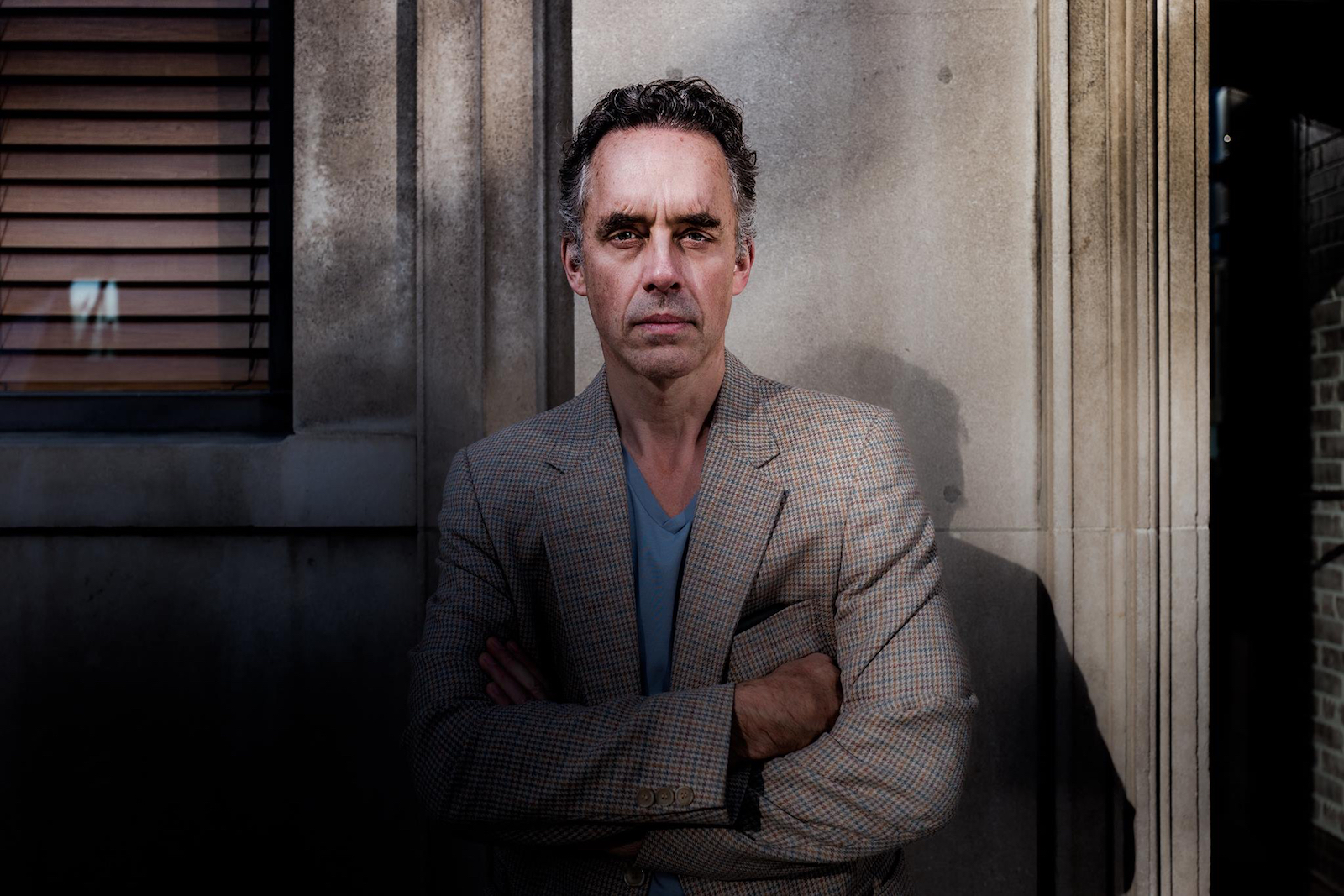
Culture
The Jordan Peterson Effect
Most journalistic attempts at discussing Jordan Peterson are poorly written, ill-informed and partisan. In almost any critical treatment of him, it is immediately evident that the author is regurgitating second-hand accounts and/or has only cursorily exposed himself to Peterson’s work. Usually these summaries are then further bastardized in a hack job piece of repackaged political bias.
To be fair to some of the authors, Peterson can espouse cryptic, deep and easily-to-misinterpret thoughts. Forget about sound bites, you can listen to an entire lecture and still be unable to summarize where he stands on a given issue. This is partially intentional: Peterson is one of the few intellectuals who explicitly states that he is thinking out loud, that he is working through his thoughts with the audience or classroom as he goes (i.e. in his latest biblical lectures). He is also one of the few intellectuals who will openly say he doesn’t know the answer and needs more time to think about it before answering.
Peterson’s amorphous nature is also partially intentional: he wavers on giving opinions or stating his beliefs on certain issues in a way that is not entirely believable (for example, his stance on the existence of God or on certain political policies). Now, I fully agree that almost all societal and individual issues are highly complex and the result of multiple causes, which are often simply unidentifiable.
In short, things are not simple; it is not easy to pin down complex phenomena with simple one-word answers. Sound-bite answers and over-simplification combined with a kind of reflexive self-censoring are hallmarks or our Twitter-society, and are a development for the worse. The fundamental issue with his wavering on issues is the asymmetry of his application of this epistemological doubt. While he may have ironclad views about certain issues (i.e. the underlying post-Marxist roots of most slightly-left positions on almost anything, or the natural Pareto distribution underlying almost all wealth, talent and population distributions in the world), and is very willing to espouse these to explain a wide-range of topics, he seems unable to render even a guess about other issues.
Peterson also has an intrinsic internal bias in criticizing right-leaning positions. He tends to use straw men of left positions and steel men of right positions. Now most of us do this, and to some degree it is to be expected from anyone, although some of it surely has to do with not wanting to alienate a portion of the Patreon base. I could be wrong on this, but my instinct tells me Peterson censors himself on issues which might alienate the right-leaning base. Why is this important: because denying the calculated nature of his choice of targets is disingenuous, and when detectable to an astute listener, undermines his appeal. It waters down the message and makes it more susceptible to dismissal and critique.
Here are summarized descriptions of a few of Peterson’s views. These summaries do not fully capture his view. They summarize and overstate the case, but hopefully they deliver the gist of his larger thoughts on the topic.
1. All social systems equally lead to extreme inequality, aka the power of the Pareto distribution
Of course, all social systems lead to some degree of inequality (economically, but also in terms of political power). However, Peterson’s reliance on the law of Pareto distribution/econo-physics/some variation of Geoffrey West’s Scale, is often too crudely employed, and used to rationalize societal outcomes that in fact are malleable. The idea’s underlying persistent, non-linear distributions across natural and societal phenomena are powerful and richly explanatory. They deserve much more nuanced application than Peterson gives them.
Furthermore, what is to be said of the radically different institutional setups of continental Europe compared with the North Atlantic economies, or Japan? See David’s Soskice’s Varieties of Capitalism; or look into the protective policies underlying the successful development of economies throughout history. Economic prosperity, innovation and citizenry well-being can be delivered through a variety of pathways. To deny this is to shut down valuable discussion.
2. All left-leaning positions are a result of post-modern, neo-Marxist thought
One of the most challenging aspects of encountering Peterson’s views was his assertion that, in general, left-leaning positions were the product of a post-modern Neo-Marxism. A significant portion of left-leaning positions come out of economic analysis, some degree of perceived morality about class/race and societal mobility, and an anti US military-industrial-complex kind of thinking; those more closely associate with thinkers like Noam Chomsky and Howard Zinn. These beliefs are not the result of the post-modern, gender studies, identity-politics that Peterson riles against. Grouping the entire left spectrum into identity politics alienates potential allies, and is just generally inaccurate. Further, it fails to deal with the legitimate critiques of those thinkers substantively.
3. All left-leaning positions will deterministically lead to the Gulag
This is a partial exaggeration of Peterson’s view, but not totally. This might be the position that turns the most people away from his work. I can somewhat understand where he is coming from, but Canada will not become the USSR or Nazi Germany. Timothy Snyder might call this naive, but it’s just not going to fly. The Daily Show’s mockery of communist Sweden delivers the best critique of this view out there. There is also a deeper theoretical point here, because it asserts a kind of determinism about future societal developments (strikingly Marxist idea).
4. We should strive for analysis and change primarily at the individual level, not societal
I am all for Peterson’s ‘clean your room’ attitude. Certainly at various life stages, it is valuable advice. I also fully back the idea that one needs to be careful in enacting societal changes with unpredictable consequences. An understanding of complexity theory and dynamic systems shows us the potential ill effects of disrupting the variables of a fragile system. However, combined with Peterson’s belief that life is suffering and painful, this individual-level focus lends itself to a radically conservative position: seemingly no societal issue can or should be changed. One wonders the abolition of slavery or the advancement of labor and civil rights could have ever been won while adhering to Peterson’s position on this. How does one even decide what aspects of society to try to change using his lens?
5. Idea of attacking Trudeau: enacting a state change, and hypocritical
I may be on shaky ground here, but I will still throw it out there. I have recently detected an influx in negative attention paid to Justin Trudeau: Conservative pundits like Ben Shapiro and Dave Rubin suddenly have something to say about Canada’s PM. Any Canadian out there will realize the incredible oddity of this. We have spent our whole lives aware that basically no one in the US (including the media) could even tell you the name of Canada’s PM. Now of course, Justin has done a fair deal to garner attention (his stupid shirtless appearances or planking selfies, or his utterance of ‘people-kind’), Europeans seem to love him, and the US liberal media has given him a lot of attention, particularly in comparison to Trump.
I am no fan of Trudeau- he’s an intellectual lightweight with very few policy ideas, and is a testament to the general political disengagement of the average Canadian. Nonetheless, let me be the first to flag the danger of the Conservative ‘Dark-Web’ suddenly being aware of and attacking Canada’s PM as some kind of proxy-target for an ideological war they believe they are waging. Further thoughts are needed on this, I could be wrong and maybe the attention will discipline Trudeau’s thinking. Still, it seems to be an unwelcome development that might go off the rails pretty quickly. Peterson is also likely the conduit through which Shapiro types have even come to know about Trudeau’s antics, while he remains entirely silent on anything Trump ever does or tweets.
